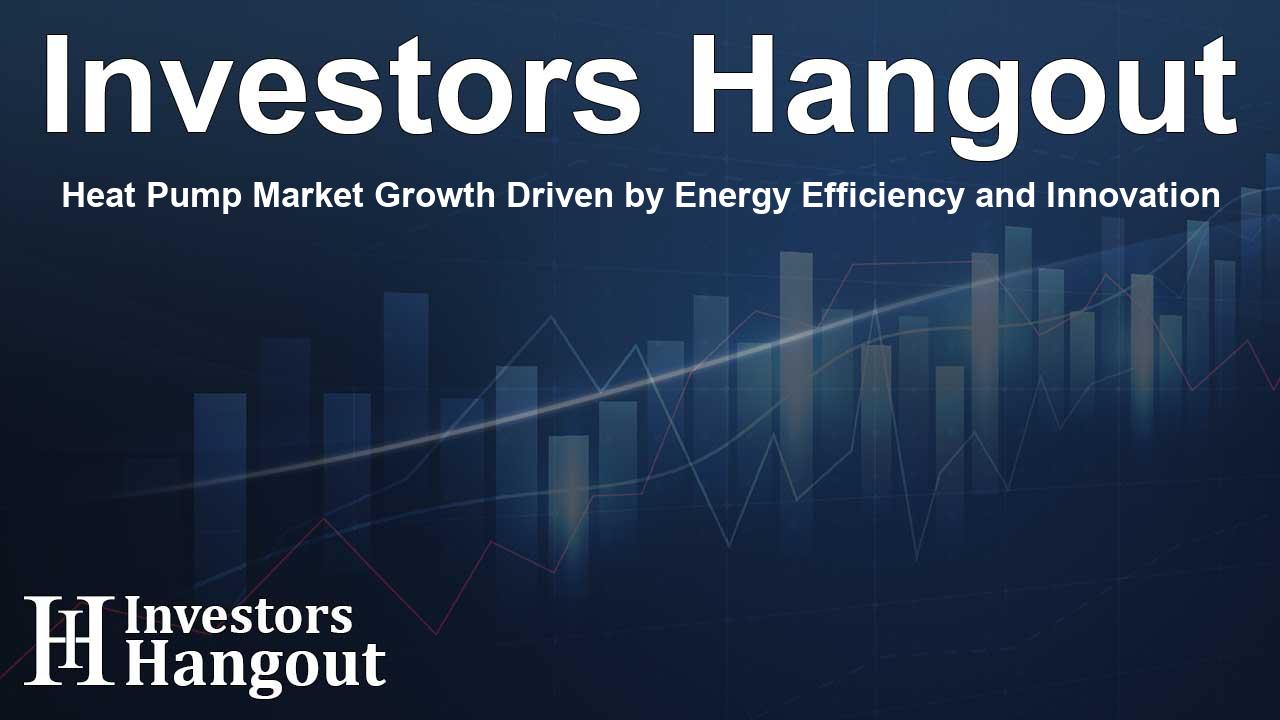Heat Pump Market Growth Driven by Energy Efficiency and Innovation

The Promising Growth of the Heat Pump Market
As the global focus shifts towards energy efficiency and sustainability, the heat pump market is witnessing phenomenal growth. Recent insights indicate that the market is set to reach USD 147.29 Billion in the coming decade, fueled by innovative technologies and strategic partnerships.
Driving Forces Behind Market Expansion
One of the key drivers for the heat pump market is the increasing integration of the Internet of Things (IoT) in energy solutions. By leveraging IoT technologies, companies can create smarter, more efficient heating and cooling systems that adapt to user preferences and environmental conditions. This synergy not only enhances operational efficiency but also fosters greater customer satisfaction through streamlined service.
Collaboration Enhancing Efficiency
A notable partnership between leading companies demonstrates the potential of collaboration in this sector. For instance, the alliance between Lennox and ServiceTitan showcases innovative field service management approaches that are essential in meeting the growing demand for energy-efficient heating solutions.
Understanding Heat Pumps and Their Efficiency
Unlike traditional heating devices that generate heat, heat pumps transfer heat from external sources such as air or water. This mechanism is highly efficient, with modern heat pumps boasting a Coefficient of Performance (COP) that can yield heating output multiple times greater than the energy consumed. The applications of heat pumps span across various sectors, demonstrating their versatility and cost-effectiveness.
Applications Across Industries
Heat pumps are categorized based on their functionality—ranging from heating-only systems to advanced units that provide both heating and cooling. Their applications extend beyond residential use to include key sectors like food processing, textiles, and chemicals. For instance, heat pumps play a significant role in reducing carbon footprints in the paper industry, while in the automotive sector, they assist in processes like electroplating.
Advancing Industrial Sustainability
As sustainability becomes a more urgent necessity, heat pumps emerge as critical tools in achieving environmental goals across industries. Their ability to utilize waste heat and operate efficiently while reducing reliance on fossil fuels aligns perfectly with international decarbonization efforts.
The Role of Technological Innovations
Technological advancements have significantly enhanced the capabilities of heat pumps. The introduction of hybrid systems that combine heat pumps with traditional gas systems provides increased flexibility and efficiency, meeting diverse industry demands. This trend is amplified by the development of rotational heat pumps, which can simultaneously provide both heating and cooling, thus maximizing energy use.
Challenges Facing the Market
Despite their advantages, heat pumps face challenges, particularly associated with their initial installation costs. With installation costs averaging around $16,000, many homeowners are deterred despite the long-term savings these systems provide. Factors such as unit size, system type, and the existing infrastructure can significantly affect pricing, creating barriers to widespread adoption.
Innovative Financing Options
To mitigate these challenges, the market is witnessing innovative financing options and incentives aimed at promoting the adoption of heat pump systems. Governments and industry associations are providing support to encourage shifts towards energy-efficient solutions to meet global sustainability targets.
The Way Forward for the Heat Pump Industry
The heat pump market's potential for growth is immense, driven by a collective push towards cleaner energy sources and innovative technologies. The market's trajectory suggests a bright future where heat pumps become standard in both residential and commercial settings, marking a significant step towards a sustainable future.
Frequently Asked Questions
What is the projected growth rate of the heat pump market?
The heat pump market is expected to grow at a CAGR of 9.7%, reaching USD 147.29 Billion by 2032.
How do heat pumps compare to traditional heating systems?
Heat pumps are generally more efficient than traditional heating systems as they transfer heat instead of generating it, often resulting in significant energy savings.
What are the main applications of heat pumps?
Heat pumps are used across various sectors including residential heating, industrial operations, food processing, and air conditioning.
What challenges does the heat pump market face?
High installation costs and the need for existing infrastructure adaptations are significant challenges facing the heat pump market.
How can technological advancements improve heat pump efficiency?
Technological innovations such as IoT integration and hybrid systems can enhance the efficiency and operational capabilities of heat pumps, making them more adaptable to user needs.
About Investors Hangout
Investors Hangout is a leading online stock forum for financial discussion and learning, offering a wide range of free tools and resources. It draws in traders of all levels, who exchange market knowledge, investigate trading tactics, and keep an eye on industry developments in real time. Featuring financial articles, stock message boards, quotes, charts, company profiles, and live news updates. Through cooperative learning and a wealth of informational resources, it helps users from novices creating their first portfolios to experts honing their techniques. Join Investors Hangout today: https://investorshangout.com/
Disclaimer: The content of this article is solely for general informational purposes only; it does not represent legal, financial, or investment advice. Investors Hangout does not offer financial advice; the author is not a licensed financial advisor. Consult a qualified advisor before making any financial or investment decisions based on this article. The author's interpretation of publicly available data shapes the opinions presented here; as a result, they should not be taken as advice to purchase, sell, or hold any securities mentioned or any other investments. The author does not guarantee the accuracy, completeness, or timeliness of any material, providing it "as is." Information and market conditions may change; past performance is not indicative of future outcomes. If any of the material offered here is inaccurate, please contact us for corrections.